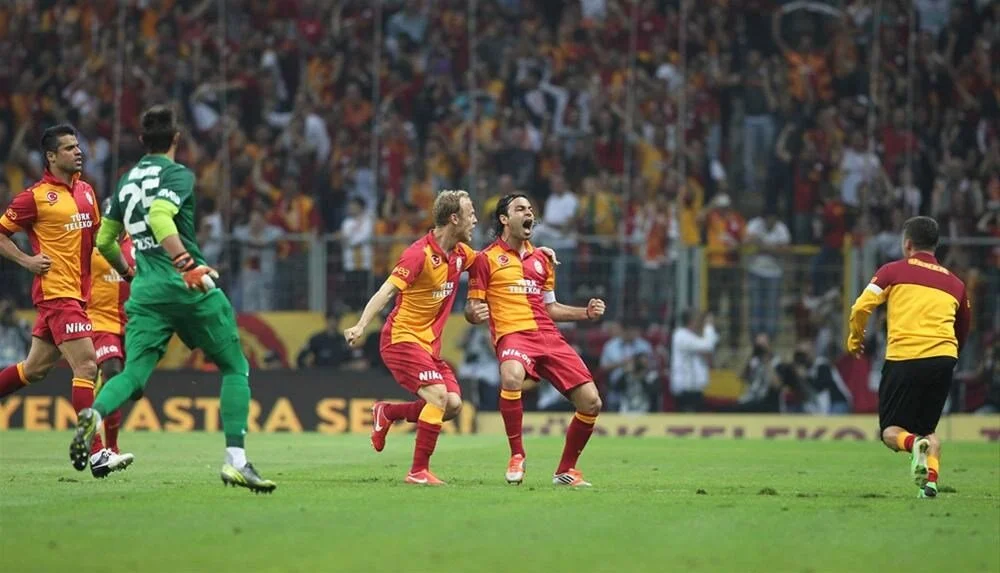The throwing of the official letter to the TFF by Galatasaray for match postponement has been felt all over the football fraternity. This switch motivated by pressing concerns also brings to the fore of the cardinal challenges facing groups of teams do and challenges when it comes to synchronization of an ardent schedule and optimal performance.
Understanding the TFF Postponement Request
Postponement requests aren’t new in football, but they always come with a mix of support and controversy.
Check Out:
Mark Davis Sells More Raiders Shares Following Tom Brady Approval
What Led to Galatasaray’s Application?
The reason for the application is in the tight schedule of the team’s activities due to the national and regional championship, European cups, and national team games. That is why the team has argued that because of player tiredness and fixture congestion, the games should be changed.
The Role of TFF in Scheduling Matches
When it comes to the fixtures, the Turkish Football Federation works on the fixtures to guarantee them to be proper and within the leagues rules. But, to what the best of all clubs and all broadcasters can get, or what would best suit all stakeholders is not easy to achieve.
Key Reasons Behind Galatasaray’s Postponement Request
Galatasaray’s application highlights several challenges that have forced their hand.
Player Fatigue and Fixture Congestion
The modern football calendar leaves little room for rest. Super-critical work demands vital instantaneous reprieves which are unavailable to players often resulting to fatigue as well as enhanced vulnerability to injuries. As for the Galatasaray, the tight schedule is a true headache for all the members of the team.
International Commitments and Scheduling Conflicts
With many of Galatasaray’s key players representing their national teams, international breaks create additional strain. This dual responsibility has left the team with limited time to prepare for critical league matches.
How the Postponement Could Impact Galatasaray
While a postponement may offer immediate relief, it comes with both advantages and risks.
Benefits of Rescheduling for the Team
A delay could allow injured players to recover, provide much-needed rest to the squad, and enable better preparation for upcoming matches. This would likely improve performance in high-stakes games.
Potential Risks of a Postponement
However, rescheduling may compress the calendar further down the line, leading to even more congestion. Additionally, opponents may criticize the move as unfair, potentially impacting team morale and public perception.
TFF’s Response to Postponement Requests
The ball is now in the TFF’s court. How they respond will set a precedent for future applications.
Historical Precedents for Match Delays
In the past, TFF has approved postponements under exceptional circumstances, such as severe weather or unforeseen events. However, rescheduling for fixture congestion or international commitments is less common.
Possible Outcomes of the Application
The TFF could approve, reject, or negotiate a compromise regarding the timing of the match. Each decision comes with its own set of consequences for Galatasaray and their rivals.
Reactions from Fans and Rivals
Not surprisingly, this request has caused emotions among the fans as well as opponents and supporters of Galatasaray.
Support from Galatasaray Fans
Fans of Galatasaray have largely backed the move, emphasizing the need to prioritize player health and performance. Many view it as a necessary step to ensure the team can compete effectively on all fronts.
Criticism from Competing Teams
Meanwhile, the opponents of the request have been the rival teams and their supporters, who claim that such a change is antileague and gives Galatasaray an unfair advantage. These criticisms highlight the competitive tensions in Turkish football.
Broader Implications for Turkish Football
This postponement request raises larger questions about how the league handles fixture congestion and fairness.
How Postponements Affect League Integrity
Sometimes whenever the games are shifted, it becomes inconvenient for the league, the fans, broadcasters, and other related teams. Among the criteria within the decision-making process it is very important that in order to maintain the trust in the system the certain decisions are made.
Balancing Fairness with Flexibility
While fairness is important, flexibility is equally vital in addressing the unique challenges faced by clubs participating in multiple competitions. Striking the right balance is no easy task for the TFF.



















